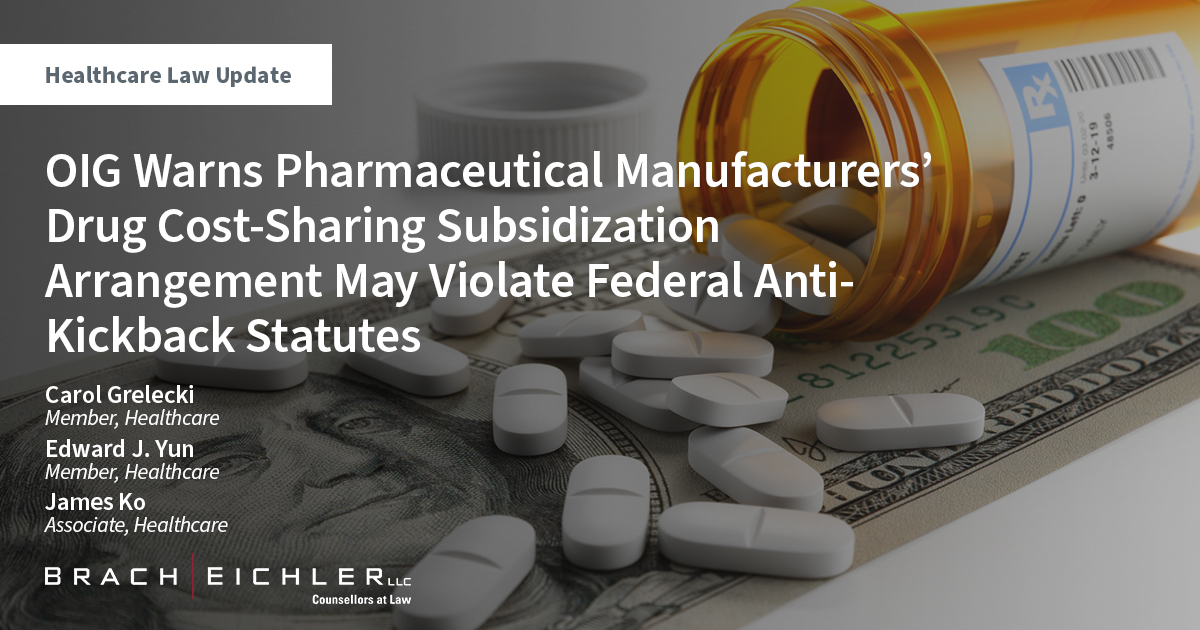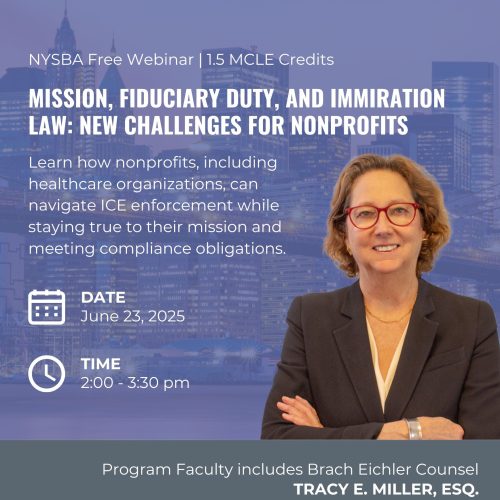Under the proposed arrangement, the drug manufacturers would:
1. finance all of the non-profit entity’s operating costs;
2. fund, through the non-profit entity, specified programs, and eligible beneficiaries’ health insurance premiums; and
3. fund, through the non-profit entity, cost-sharing subsidies for the manufacturers’ drugs covered under Medicare Part D.
Part D beneficiaries would be eligible for cost-sharing subsidies if they were diagnosed with cancer, have a household income between 150-350% of the federal poverty level (FPL), and were prescribed an oncology drug of one of these drug manufacturers covered by their Medicare Part D Plan.
The OIG concluded that the proposed arrangement would generate unlawful remuneration under the AKS if the requisite intent were present. The OIG determined that the cost-sharing subsidies indirectly provided by the drug manufacturers to eligible Part D beneficiaries would constitute remuneration that could induce the purchase of an item reimbursable under a federal health care program. Additionally, the OIG concluded that these cost-sharing subsidies would not meet any statutory exception or regulatory safe harbor under the AKS and “present more than a minimal risk of fraud and abuse.”
However, the OIG concluded it would not impose sanctions under the CMP, which sets forth civil penalties for anyone who offers or transfers remuneration to a Medicare or Medicaid beneficiary that is likely to influence the beneficiary’s selection of a particular provider, practitioner, or supplier for an item or service payable by Medicare or Medicaid. The OIG noted that neither the non-profit entity nor the drug manufacturers are a provider, practitioner, or supplier. The OIG concluded that because the cost-sharing subsidies would be available to any pharmacy willing to accept the subsidies without regard to a Part D beneficiary’s choice of provider, practitioner, or supplier, the remuneration that would be offered likely would not influence a beneficiary’s selection of a particular provider, practitioner, or supplier.













